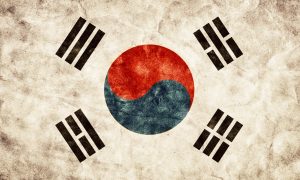South Korea’s zero-sum game politics has turned into a political quagmire over the so-called “Kim Keon-hee risk,” involving the first lady’s receipt of a Christian Dior bag. Ironically, the scandal has become a leadership test not only for President Yoon Suk-yeol and the ruling People Power Party (PPP), but also for the main opposition Democratic Party (DP) ahead of the parliamentary elections set for April 10, a prelude to the 2027 presidential election.
The DP has been pushing for an investigation into the first lady, unilaterally passing a special counsel bill, which Yoon vetoed in early January, deepening public suspicion of culpability even among supporters of the PPP over the allegations against Kim.
The Yoon administration and the minority ruling PPP have been struggling with Yoon’s low public approval ratings, which have hovered around the mid-30s percent since his inauguration in May 2022. Public discontent led to the PPP’s crushing by-election defeat in Seoul last October.
Yoon then made an unusually quick apology, saying, “the people are always right,” while the PPP launched an emergency steering committee led by Han Dong-hoon, Yoon’s former justice minister. Han became the PPP’s third interim leader after Kim Gi-hyeon, the former leader, had abruptly stepped down.
Pundits say that the parliamentary elections will most likely be a “neck-and-neck race,” more unpredictable than previous ones. And many analysts believe the PPP’s main problem is Yoon.
Primarily, Yoon’s dogmatic and high-handed governance is being put to the test, not only in terms of his vertical “master-servant” relationship with the PPP – with himself as its “master” – but also in terms of the alleged “privatization of power” by the first lady. According to Pak Hong-gun, the floor leader of the DP, Kim has become a powerhouse that even the president can do little about, despite her promise during Yoon’s 2022 presidential campaign that she would only offer support for her husband if he was elected.
According to a joint poll by four survey institutions, including Embrain Public, K-Stat Research and Korea Research, 65 percent of respondents believed that Yoon’s veto of the special counsel investigation act was a “wrong decision,” nearly three times more than the 23 percent that believed it to be a “good decision.”
This survey result reflected the strong public sentiment against the so-called Dior pouch controversy. Kim was secretly filmed receiving an expensive Dior bag from a Korean American pastor, and the video was released late last year by Voice of Seoul, a liberal news outlet, on YouTube. Despite public criticism, Yoon’s presidential office and the PPP have maintained that the handbag controversy was “a planned scam” with the first lady its victim.
At odds with Yoon’s firm stance, calls for Kim to apologize spread within the ruling party, triggering a head-on-clash between Yoon and the PPP interim leader Han Dong-hoon. Yoon’s chief of staff reportedly requested Han’s resignation.
The Yoon-Han clash, although ostensibly brief, ironically generated a sudden surge in Han’s approval rating to 52 percent, while his negative evaluation stood at 40 percent, according to a Gallup Korea survey. Yoon’s approval rating, in stark contrast, fell to 31 percent while his negative evaluation soared to 63 percent, the highest since April last year, with the first lady issue being the third major factor.
Meanwhile, Yoon’s love for his wife apparently makes no distinction between public and private matters. He does not let anyone question the first lady who, as a Hankyoreh political reporter noted, has become “untouchable.” In a pre-recorded interview aired on KBS television ahead of the Lunar New Year, Yoon described his wife’s Dior bag saga as a “political maneuver.” He didn’t offer an apology, other than saying “It was regrettable,” nor did he explain why she had accepted such a gift in the first place. An explanation was the bare minimum most Koreans expected to receive from Yoon.
As it stands, the “Kim Keon-hee risk” for the president has transformed into “Yoon Suk-yeol risk” for the PPP as a whole.
The bigger problem that Yoon and his PPP face is how they can regain the voters’ trust in their leadership. This is a problem for the opposition DP as well. Public surveys show that South Korean voters harshly judge both rival parties for their respective failures.
The Korean voters are angry at Yoon and the PPP for perceived incompetent and high-handed governance, just as they are angry at the DP for its alleged tyranny in railroading through bills and vetoing government proposals, using their majority of 168 seats in the 298-member National Assembly. Only 36 of 144 government proposals passed the legislature in the first year of the Yoon administration.
The DP, under Chairman Lee Jae-myung, archnemesis of Yoon since their presidential contest, is viewed by many Koreans as “bulletproof.” The opposition party has closed ranks in defending Lee against legal risks stemming from ongoing investigations on charges including election fraud and bribery.
Lee’s growing legal and political risks have now embroiled the DP in a nomination war between the forces of Lee and those of former President Moon Jae-in, stirring up a leadership crisis amid an untimely dispute over who holds the responsibility for the DP’s defeat in the 2022 presidential election.
In this regard, the emergence of the New Reform Party from this cauldron signals the beginning of a new zero-sum game in Korean politics. Breakaway groups from both the PPP and DP, dissatisfied with their former party leadership, have now unified under one banner, further muddying the political waters ahead of the upcoming legislative election.
Ultimately, Korean voters will again be forced to become critical, more so than ever, in the upcoming parliamentary elections in their search to pave and reshape their future destiny. The voting in April 2024 will most certainly affect the Korean people’s choice in the 2027 presidential election.

































